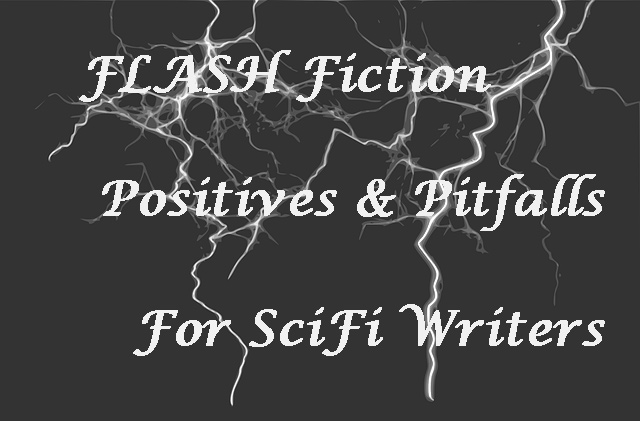Positives and Pitfalls for SciFi Writers
The definition of flash fiction is a story of 1000 words or less. It is not a genre and it is not a poem. It is an art form of condensation and clarity, motion and surprise. It can be profound, often jarring and sometimes funny. The best science fiction writers exploit a strong theme such as danger of technology, existence of aliens, evolution of ideas, human ingenuity, or a bad outcome for our society. Of course, the standby themes of love, faith, and sacrifice always work.
The more flash fiction you write the more you love the 1000 word constraint because it forces a writer to be concise — something not required in a novel. More often than not, the final version is much different that what was started. And, flash fiction is fun to write.
Flash fiction, like all stories, has a beginning, a middle, and an end. Generally, to keep the word count under control, the story starts in the middle of things (In Medias Res). The middle is constantly moving forward and the end comes swiftly in the last few lines. Backstory is a bad word, more than two characters is unmanageable, and some details simply must be left to the reader’s imagination. The trend in US academic writing has moved away from the plot twist or surprise ending to more of a psychological truth. However, SciFi readers love a plot twist as much as time travel and robots — it’s not likely to go away for us.
Flash fiction has no exact formula. Chekhov commented that the task of the writer is ‘not to solve the problem but to state the problem correctly.’ You know it when you see it. Judges of flash fiction list the positives they like, and the pitfalls they see:
Positives
- Big ideas
- Big emotions
- Concise and precise
- Masterful sentences
- Surprises
- Strong characters
- Inviting title
- Power and resonance
- Scene is set immediately
- Focus on details
Pitfalls
- A long joke or metaphor
- Dull language
- Description without emotion
- Static story
- Lack of sensory detail
- Familiar situation (SciFi demands new situations)
- No deeper significance
- Preaching, sentimental or redundant
- Vague or obscure
- Seems like an excerpt from a larger work
- Describing “a day in the life” of a character
- Failing to use enough dialogue
- Ending is too spread out

